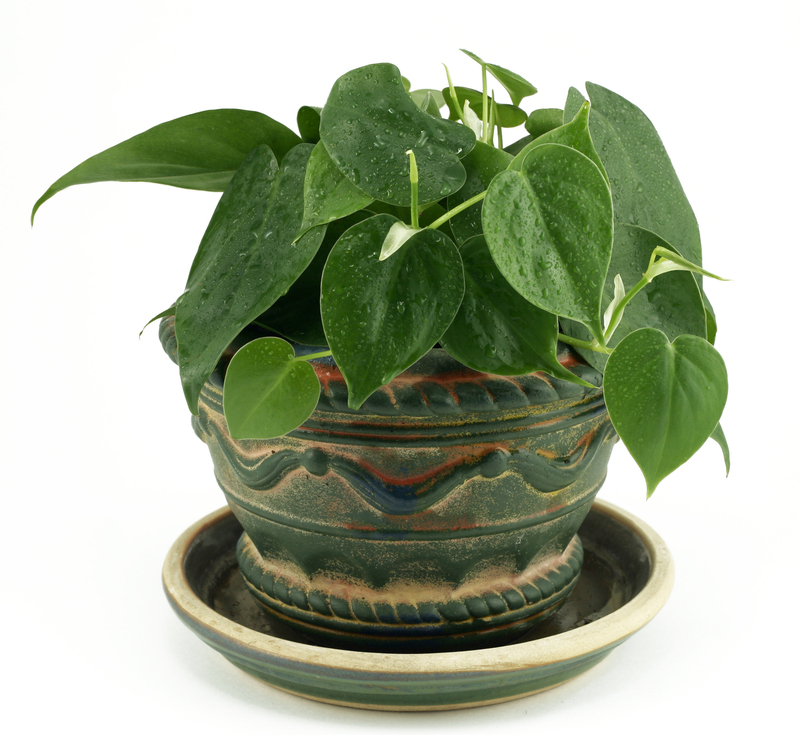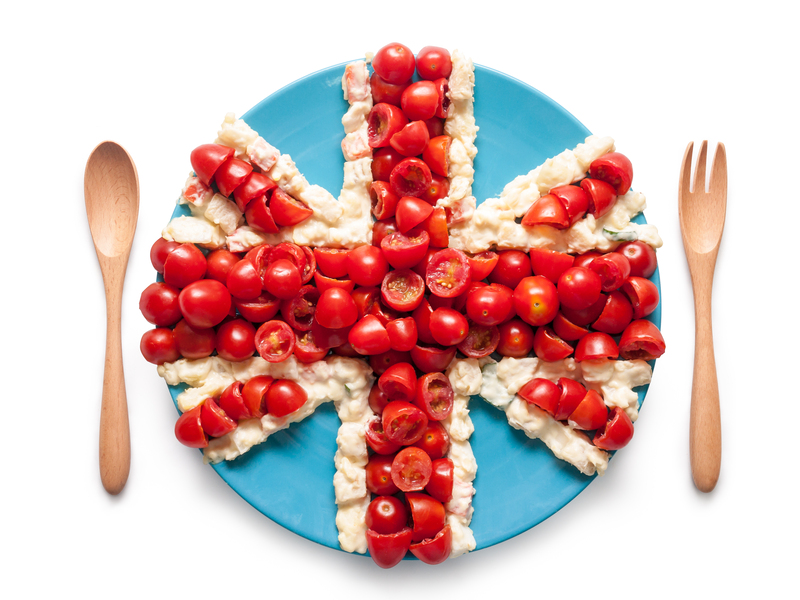Growing Success: 9 Critical Tips for New Gardeners
Posted on 04/06/2025
Growing Success: 9 Critical Tips for New Gardeners
Are you dreaming of creating your own lush, thriving garden but don't know where to start? Whether you want to fill your backyard with vibrant flowers, grow your own fresh vegetables, or simply get closer to nature, gardening is a wonderful hobby that offers relaxation, beauty, and even tasty rewards. But like any new journey, gardening comes with its own set of challenges--especially for beginners.
To help you on your path, we've gathered the most essential tips for new gardeners to set you up for growing success. From choosing the right tools to understanding the unique needs of your plants, these steps will help ensure your garden flourishes year after year.

1. Start with the Right Mindset
Gardening isn't just about the end result; it's about the journey. Beginners often expect instant perfection, but successful gardening takes time, patience, and a willingness to learn from mistakes. Embrace the process as a continual learning experience.
- Be prepared for setbacks: Plants sometimes die, even for seasoned gardeners.
- Celebrate small wins: Whether a seed sprouting or your first harvest, enjoy every milestone.
- Ask questions: Use local garden centers, online forums, and neighbors as resources to expand your gardening knowledge.
Tip: Patience is the gardener's best friend. Plants grow at their own pace, rewarding your care with beautiful blooms or delicious produce over time.
2. Understand Your Garden's Environment
Before you plant, analyze your garden space. Every plant has specific needs, and understanding your environment is crucial for beginner gardening success.
- Sunlight: Track how many hours of sunlight each area receives daily--most vegetables need six to eight hours.
- Soil Type: Is it sandy, clay, or loamy? Soil quality impacts drainage and plant health.
- Microclimates: Fences, walls, and trees can create spots that are warmer, cooler, wetter, or drier.
Once you learn your garden's characteristics, choose plants that naturally thrive in those conditions for a higher chance of success in gardening.
3. Choose the Right Plants for Beginners
All plants aren't created equal, especially for someone just starting out. Select easy-to-grow plants that match your climate and soil. Resilient plants mean less stress and more enjoyment as you learn the ropes.
- Vegetables: Radishes, lettuce, beans, and zucchini are forgiving and fast-growing.
- Herbs: Basil, mint, parsley, and chives thrive with minimal care.
- Flowers: Marigolds, sunflowers, and nasturtiums add color and are beginner-friendly.
*Check your local cooperative extension's recommended plant lists for your region.
Don't Bite Off More Than You Can Chew
Start small. A few beds, planters, or even containers are easier to manage than an entire backyard. Gradually expand as your confidence grows.
4. Invest in Essential Gardening Tools
Proper equipment makes gardening easier and more enjoyable. While there's no need to buy every gadget in the store, every new gardener should have these basic tools for gardening success:
- Hand trowel for digging and transplanting.
- Pruning shears for trimming plants.
- Watering can or hose with a gentle spray nozzle.
- Gloves to protect your hands.
- Garden fork or spade for breaking up soil.
Keep your tools clean and dry them after each use to prolong their lifespan.
5. Prepare the Soil for Growing Success
Healthy, fertile soil is the foundation of gardening success. Spend time preparing your soil before planting.
- Test your soil: Most garden centers offer simple kits to measure pH and nutrient levels.
- Add organic matter: Compost, manure, or leaf mold improve texture and fertility.
- Avoid compacted soil: Loosen soil to at least 6-8 inches deep to encourage root growth.
Feeding your soil is as important as feeding your plants--remember the old gardener's rule:
"If you take care of the soil, the plants will take care of themselves."
6. Master the Art of Watering
Overwatering is the most common mistake new gardeners make. Each plant has its own watering needs, so understanding these basics is vital for successful garden growth:
- Water deeply and less frequently to encourage deep roots.
- Aim for the roots, not the leaves, to prevent disease.
- Morning watering is best for most gardens--it reduces evaporation and minimizes fungal risk.
- Use mulch around plants to retain moisture and reduce weeds.
A simple finger test--stick your finger an inch into the soil. If it feels dry, it's time to water.
7. Keep an Eye on Weeds and Pests
Unwanted weeds and persistent pests can disrupt your gardening efforts. Stay vigilant and proactive with these beginner-friendly tips:
- Mulch generously: It suppresses weed growth and retains soil moisture.
- Hand-pull weeds before they set seed to prevent spreading.
- Inspect plants regularly for signs of pests like holes, discoloration, or sticky residue.
- Encourage natural predators: Ladybugs, birds, and frogs help control pests organically.
For beginner gardeners, choose organic pest control solutions first. Insecticidal soaps or neem oil can help, but always use them carefully and according to instructions.
8. Feed Your Plants Wisely
Plants need more than just water. Providing the right nutrients at the right time keeps them healthy and productive. Here's how to ensure your garden's success through feeding:
- Compost: Natural, balanced, and safe for all plants.
- Slow-release fertilizers reduce the risk of burning plants and provide steady nutrition.
- Follow recommendations for each plant--over-fertilizing can do more harm than good.
- Feed at the right stages: Seedlings, flowering, and fruiting phases often require different nutrients.
Take notes on what your plants respond to best--you'll learn what works in your unique garden over time.
Note: Nutrients such as nitrogen, phosphorus, and potassium are "the big three" for most plants. Adjust according to your soil test results.
9. Keep Learning and Enjoy the Process
Gardening is as much about continuous learning as it is about planting seeds. All successful gardeners are students of nature--curious, observant, and willing to try new things.
- Keep a gardening journal: Record what you plant, dates, weather, and outcomes.
- Join community groups: Local clubs or online forums offer advice and friendship.
- Read gardening books, magazines, and blogs: New tips and inspiration are always available.
- Visit botanical gardens and nurseries to see creative ideas in action.
Most of all, enjoy the journey. Gardening brings peace, satisfaction, and a deeper connection to the natural world.
Bonus Tips for Gardening Success
- Label your plants: Helps you remember what you've planted and when to harvest or prune.
- Rotate crops: Especially in vegetable gardens, changing locations each year prevents soil depletion and reduces pest problems.
- Prune regularly: Keeps plants strong, improves air circulation, and encourages new growth.
- Experiment! Don't be afraid to try new seeds or methods--you just might discover a new favorite.

Frequently Asked Questions for New Gardeners
How can I tell if my soil is healthy?
Healthy garden soil is crumbly, dark, and rich-smelling, with plenty of earthworms. If your soil is hard, gray, or devoid of life, it likely needs compost and organic matter.
What are the easiest vegetables for beginner gardeners to grow?
Lettuce, radishes, beans, peas, and zucchini are all easy vegetables for new gardeners. They sprout quickly and don't require advanced techniques.
How often should I water my garden?
There's no one-size-fits-all answer--water requirements vary. As a rule of thumb, most gardens need about one inch of water per week, either from rain or irrigation.
Is it better to start from seeds or seedlings?
Seedlings are convenient and easy, while seeds can be economical and offer more variety. Try a mix of both to see what works best for you.
Conclusion: Flourishing with Confidence
Every gardener starts as a beginner. With patience, curiosity, and these nine critical tips for new gardeners, you'll soon find yourself growing your skills right alongside your plants. Remember, there are no failures in gardening--only lessons and new beginnings. Here's to your growing success!
Happy gardening!
Latest Posts
Unlock the mysteries of orchid nurturing
Zen Garden Aesthetics for an Idyllic and Peaceful Space
The Art of Hedge Trimming: Discover Diverse Shapes and Methods

